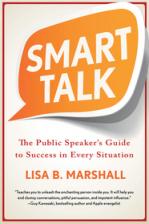Do You Have an Employment Gap in Your Resume?
Do you need to explain an employment gap during your next job interview? The Public Speaker explains the best way to frame your lack of employment with a potential new boss.
I recently received a phone message about how to handle an employment gap. Listener Mirza asks:
“I have an MBA and almost 3 years experience in finance. But I have a 9-month gap in employment. How do I answer questions about this in an interview?”
Sponsor: This podcast is brought to you by Betterment.com. Betterment offers users an easy way to invest. No prior investing experience is required. Users choose how to allocate their money between two pre-set baskets — a stock basket and a bond basket. Signing up takes less than 5 minutes, and money can be added or withdrawn at any time without a fee. Users who sign up at betterment publicspeaker will receive a $25 account bonus as long as their initial deposit is $250 or more.
Employment gaps are more common than you might think. Some of the reasons employment gaps occur are:
-
being laid off
-
dealing with health problems
-
taking care of a family member
-
taking time off to raise children
-
taking time to travel
An article in the Harvard Business Review entitled “What Employers Want from the Long-term Unemployed” looked at the results of a survey of employers done by CareerBuilder. Here’s what the survey revealed said about employers and employment gaps:
”… 85% of hiring managers and human resource managers are more understanding of employment gaps now than they were pre-recession. While that’s refreshing news, it comes with an important caveat: This group still needs to go another step to draw attention to their resumes.”
Here’s what I recommend to Mirza and anyone with a gap in employment in their history:
Tip #1: Address the Employment Gap in Your Cover Letter
When you apply for a job, explain your time off in your cover letter and describe what you’ve done to keep your skills fresh during that period. This prepares the hiring team before they review your resume or meet with you in person.
Tip #2: Be Honest
In your cover letter you can simply say “I took time off to handle a personal matter which has now been resolved.” Or, “I took time off to raise my children and they are now in full-time in school.” You can also say “I had the opportunity to further my education and took 9 months off to improve my skills.”
Once you get to the interview, you can choose to elaborate and offer more details on your time away from the workforce…or not. If the potential employer saw the uneployment gap in your resume and invited you in for an interview anyway, they’re likely not too hung up on it and may not be interested in further details.
Tip #3: Show that You’ve Kept Your Skills Current
Use your interview to explain how taking the time off helped keep your skills up-to-date. Most employers surveyed by CareerBuilder said that taking a class, volunteering. or working a temporary assignment were all effective ways to keep skills fresh.
Did you create a blog during your time away from work? Did you do volunteer work? Did you take a course to freshen up your skills or learn new ones? Did you listen to podcasts relating to your field? These can all be discussed during your interview and are a way to make your employment gap more palatable for a potential employer.
Tip #4: Show that You’re Ready to Work
Depending on the reason for the gap in your resume, it may not always be possible to keep your professional skills up-to-date when you’re not working. Maybe you’ve had a 9-month gap because of personal reasons (like a divorce or health issues). Maybe you were dealing with a difficult situation in your life. Whatever it is, you shouldn’t feel obliged to share the details. Instead, you can say something along these lines in a very matter-of-fact tone:
“During that 9 months I needed to focus on a very important personal matter—however, now that issue has been completely resolved and I am eager to return to work full-time.”

This is Lisa B. Marshall, Helping you maximize sales, manage perceptions, and enhance leadership through keynotes, workshops, books, and online courses. Passionate about communication; your success is my business.
If you want even more success in your life, I invite you to read my latest book, Smart Talk and listen to my other podcast, Smart Talk: Inspiring Conversations with Exceptional People.
Betterment LLC is an SEC Registered Investment Advisor. Brokerage services are offered by Betterment Securities, an SEC registered broker-dealer and member FINRA/SIPC. Investments are not FDIC Insured. No Bank Guarantee. May Lose Value. Investing in securities involves risks, and there is always the potential of losing money when you invest in securities. Before investing, consider your investment objectives and Betterment’s charges and expenses. Not an offer, solicitation of an offer, or advice to buy or sell securities in jurisdictions where Betterment and Betterment Securities are not registered.
Nervous businessman image courtesy of Shutterstock.
You May Also Like…







